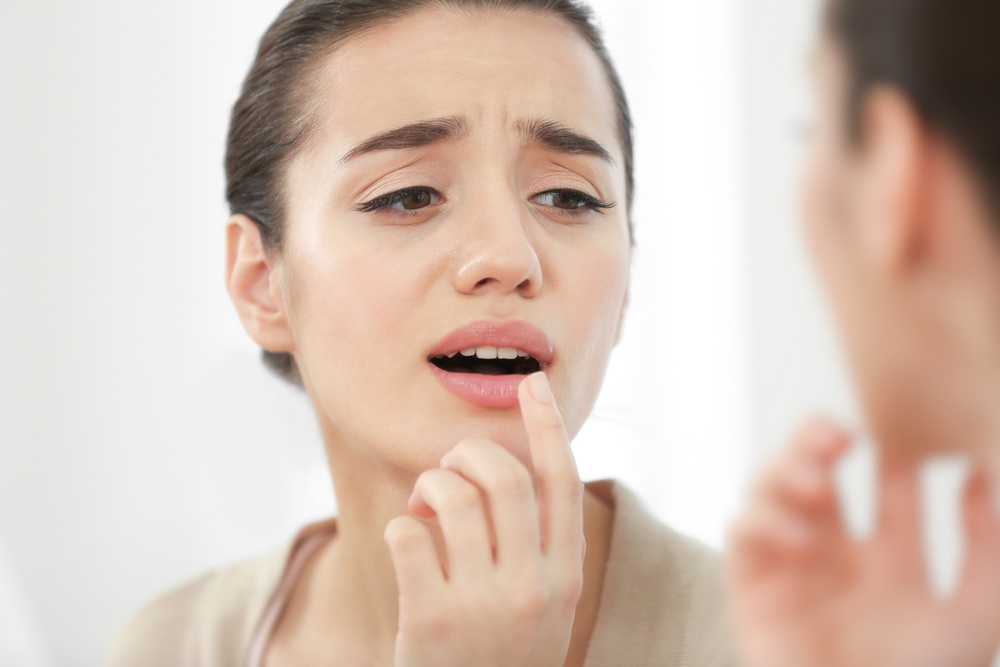Canker Sore Causes, Treatment and Prevention
We bet you’ve probably heard of canker sores and even if you’re not sure what they are, the name itself sounds a bit…gross. But canker sores are a very common thing. In fact, more than 3 million Americans each year will experience a canker sore. You’ve probably had one yourself and had no idea it was identified as such.
We’ll demystify these painful little buggers for you and give you some at-home remedies to ease the discomfort. Read on to learn more about canker sores.

What are they?
Canker sores are small ulcers that occur in different parts of the mouth. These tiny ulcers can make it painful whenever you move your mouth—including eating and talking. According to the Mayo Clinic, there are three types of canker sores—minor, major and herpetiform.
Minor, or simple canker sores are very common, and the type that the statistic refers to earlier. Medical professionals estimate that these types of canker sores can pop up in your mouth a few times each year. They are small and last no longer than a week with no scarring.
Major canker sores are much larger than minor canker sores, and can be incredibly painful. They take up to six weeks to completely heal, and even then there is a possibility for scarring.
Herpetiform canker sores, unlike its name, are not caused by the herpes virus. These are very small clusters of tiny, individual canker sores that form one big canker sore, but typically heal within one to two weeks.
Causes & Symptoms
While what causes canker sores is still largely unknown, speculations have been made that stress can be a contributing factor. Even a simple albeit accidental bite of the inside of your lip (ouch) is thought to cause simple or minor canker sores.
Foods that have a high acidic or citric property, like lemons, oranges, pineapples, tomatoes and strawberries can create a canker sore and in some situations, intensify the problem.
Minor canker sores can also be caused by braces, dentures and even the rough surface of a tooth or other foreign object in the mouth. Regardless of the cause, the pain is still the same—and incredibly bothersome.
Canker sores have very obvious symptoms, no matter the size. You’ll experience a painful sore inside of your mouth, which can be on the inside of your cheeks, your tongue or even the roof of your mouth.
You may even experience a tingling or burning feeling before a sore happens, so pay attention and catch them before they start. Canker sores almost always appear round or oval and are most likely white with a red border.
Treatment & Prevention
Chances are, if you’re experiencing these symptoms and are visually able to identify the spot, you have a canker sore but to be safe, you should consult with your dentist first. Even if you think you have a canker sore, you may not be able to identify the severity of it.
If you’re identified as having a minor canker sore, some over-the-counter remedies include:
- Rinsing your mouth with salt water and baking soda
- Benzocaine (a numbing agent)
- Applying small pieces of ice
Make sure you avoid spicy and acidic foods and brush your teeth as gently as possible so you don’t irritate the already aggravated sore.
Major or herpetiform canker sores require more medical attention. Your dentist can prescribe you topical pastes to help with pain, mouth rinses with steroids to provide relief and reduce swelling or perform cauterization if absolutely necessary.
To prevent canker sores from making a repeat appearance in your mouth, consider taking the following measures:
- Eat lots of fresh fruit and vegetables
- Avoid spicy and highly acidic foods, or foods high in sodium (chips, pretzels, nuts)
- Continue with (or develop) good oral hygiene, including brushing, flossing, rinsing and visiting your dentist regularly
If you think you may have a canker sore, or just need a good cleaning, visit the team at West Chester Dental Arts. We’ll have your mouth in tip-top shape and ready for plenty of smiles.



